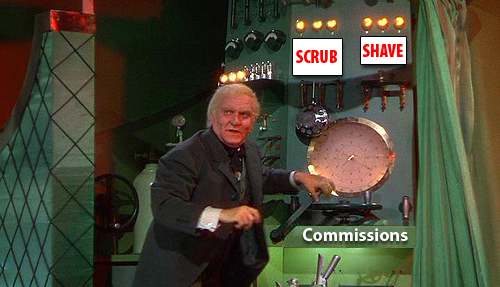It is no secret that dietary supplements, herbal remedies, patches, creams, wraps and products rubbed into the skin are high-profile. Weight loss offers are among the most intensely scrutinized by local, state and federal regulators, including those for garcinia cambogia.
Each website must be in substantial compliance based on the specific facts and nature of the advertising program. There is no bright line rule.
Issues such as claim substantiation and “competent and reliable scientific evidence,” endorsements and testimonials, before and after photos, negative option programs and third party intellectual property all must be critically considered.
This article briefly considers substantiating express and implied claims in relation to your garcinia product’s daily dosages of the compound hydroxycitric acid (“HCA”). In other words, query whether the daily intake of HCA considered in relevant “randomized and controlled human clinical trials” (“RCTs”) is substantially similar to that which you recommend to achieve the results expressed in your ad copy.
It is dangerous to assume that merely finding studies testing the same substance necessarily constitutes adequate evidence to substantiate each efficacy claim.
Ideally, locating “competent and reliable scientific evidence” (“CRSE”) should be located first, prior to building ad copy. Building ad copy first and then trying to find independent tests to fit within previously made representations is a recipe for disaster.
Simply stated, if you make an express or implied representation that your product causes weight loss, the claim cannot be misleading and you must have CRSE that substantiates that the representation is true.
For purposes of weight loss claims, the FTC aggressively promotes a two RCT standard. However, the D.C. Circuit Court of Appeals recently indicated that there may be situations where one well-designed RCT, along with other supporting non-RCT evidence, could adequately substantiate a claim. Of course, the number of studies required will continue to depend upon a variety of factors.
What do your RCTs really show?
When evaluating RCTs, always consider issues such as, without limitation, the length of the study, whether the clinical results are robust and significant, whether the study is published in a peer-reviewed journal, and, of course, the test subjects, dose, dosage form, route of administration, formulation, total length of exposure, frequency of exposure, study population and results.
If you are marketing a garcinia product, you must be extremely careful if you intend to use RCTs that do not match your product exactly in terms of dosage. Doing so will leave you vulnerable to claims of deceptive advertising for giving an unsupported message.
Literature associated with human studies of garcinia and weight loss is mixed, with interpretation complicated by diverse population inclusions and inconsistent clinical study designs. Nevertheless, positive and statistically significant garcinia-supportive data is contained within a handful of properly conducted studies and reviews.
If properly analyzed and implemented by an experienced weight loss product and nutraceutical advertising compliance lawyer, qualifying RCTs and related data on the use of the garcinia extract HCA as a weight-loss supplement can be utilized to support express and implied efficacy claims. Moreover, those same RCTs and the data contained therein can be applied in such a manner that may safely optimize conversions.
RCTs clearly establish that fat mass and weight decreases are all dependent upon a variety of factors, including HCA dosage. If your RCTs have positive findings based upon, for example, a dosage of HCA ranging from 1 g to 2.8 g daily, your product formulation and daily HCA intake instructions must be consistent. Otherwise, absent “clear and conspicuous” disclosures, all the CRSE and RCTs in the world will not help you dodge a deceptive advertising claim.
While not linear, existing data and sophisticating imaging methodologies do suggest that increased daily HCA dosage is associated with increased weight loss. Your CRSE and related representations will necessarily depend upon your product formulation and, perhaps the preparation or extraction of HCA.
Clinical observations, limitations and considerations set forth in available scientific literature with respect to the antiobesity effect and biochemical effectiveness of HCA should be critically examined and used to your advantage prior to launching a garcinia cambogia advertising campaign.
Richard B. Newman is an advertising law attorney at Hinch Newman LLP with extensive experience assisting clients with marketing campaigns, including those pertaining to dietary supplements and health-related claims. He provides strategic guidance on online marketing, ROSCA and other consumer protection laws and regulations.
Information conveyed in this article is provided for informational purposes only and does not constitute, nor should it be relied upon, as legal advice. No person should act or rely on any information in this article without seeking the advice of an attorney.




